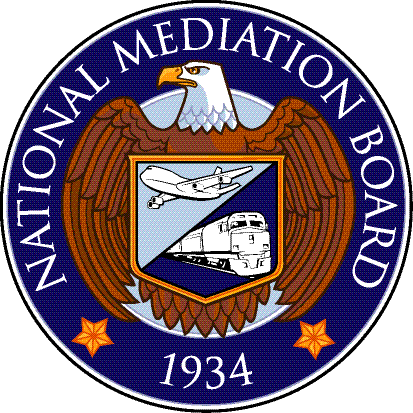Introduction
The National Mediation Board (NMB) is committed to ensuring the security of the American public by protecting their information. This policy is intended to give security researchers clear guidelines for conducting vulnerability discovery activities and to convey our preferences in how to submit discovered vulnerabilities to us.
This policy describes what systems and types of research are covered under this policy, how to send us vulnerability reports, and how long we ask security researchers to wait before publicly disclosing vulnerabilities.
We encourage you to contact us to report potential vulnerabilities in our systems.
Authorization
If you make a good-faith effort to comply with this policy during your security research, we will consider your research authorized, we will work with you to understand and resolve the issue quickly, and NMB will not recommend or pursue legal action related to your research. Should legal action be initiated by a third party against you for activities that you conducted in accordance with this policy, we will make this authorization known.
Guidelines
Under this policy, “research” means activities in which you:
• Notify us as soon as possible after you discover a real or potential security issue.
• Make every effort to avoid privacy violations, degradation of user experience, disruption to production systems, and destruction or manipulation of data.
• Only use exploits to the extent necessary to confirm a vulnerability’s presence. Do not use an exploit to compromise or exfiltrate data, establish persistent command line access, or use the exploit to pivot to other systems.
• Provide us a reasonable amount of time to resolve the issue before you disclose it publicly.
• Do not submit a high volume of low-quality reports.
Once you’ve established that a vulnerability exists or encounter any sensitive data (including personally identifiable information, financial information, or proprietary information or trade secrets of any party), you must stop your test, notify us immediately, and not disclose this data to anyone else.
Test methods
The following test methods are not authorized:
• Network denial of service (DoS or DDoS) tests or other tests that impair access to or damage a system or data;
• Physical testing (e.g. office access, open doors, tailgating), social engineering (e.g. phishing, vishing), or any other non-technical vulnerability testing;
• Social engineering tests;
• Unsolicited electronic mail to NMB users, including “phishing” messages;
• Execution or attempt to execute “Denial of Service” or “Resource Exhaustion” attacks;
• Introduction of malicious software;
• Testing of third-party applications, websites, or services that integrate with or link to or from NMB systems;
• Seeking to delete, alter, share, retain, or destroy NMB data, or render NMB data inaccessible; or
• Use of an exploit to exfiltrate data, establish command-line access, establish a persistent presence on NMB systems, or “pivot” to other NMB systems.
Scope
This policy applies to all NMB-managed systems and services accessible from the Internet. Internet- accessible systems and services include the registered domain name NMB.
Reporting a vulnerability
NMB does not provide payment for vulnerability submissions and, by submitting a vulnerability report, you acknowledge that you have no expectation of payment and that you expressly waive any future payment claims against the U.S. Government related to your submission. Additionally, NMB will not provide any type of recognition for disclosed vulnerabilities.
NMB shall accept vulnerability disclosure reports via email at soc@nmb.gov. Reports may be submitted by users anonymously. If you share contact information, we will acknowledge receipt of your report within three (3) business days.
We do not support PGP-encrypted emails. For particularly sensitive information, please use the security contact email to arrange for a secure transfer method.
What we would like to see from you:
To help us triage and prioritize submissions, we recommend that your reports:
• Describe the location of the vulnerability discovered, and the potential impact of exploitation.
• Offer a detailed description of the steps needed to reproduce the vulnerability (proof of concept scripts or screenshots are helpful).
• Be in English, if possible.
NMB is committed to the timely correction of vulnerabilities. We recognize that public disclosure of a vulnerability in the absence of a readily available corrective action likely increases versus decreases risk. Accordingly, we require that reporters of vulnerabilities refrain from public disclosure for a minimum of 90 calendar days from the date NMB acknowledges receipt of the report. In some cases, we may ask for an additional delay in public disclosure. To the extent consistent with applicable law, NMB, generally, will not publicly disclose vulnerabilities identified in its systems, even once remediated.
What you can expect from us:
When you choose to share your contact information with us, we commit to coordinating with you as openly and as quickly as possible.
• Within three (3) business days, we will acknowledge that your report has been received.
• To the best of our ability, we will confirm the existence of the vulnerability to you and be as transparent as possible about what steps we are taking during the remediation process, including issues or challenges that may delay resolution.
• We will maintain an open dialogue to discuss issues.
• Newly discovered vulnerabilities that affect all users of a product or service shall be shared with the Cybersecurity and Infrastructure Security Agency (CISA), where it will be handled under their coordinated vulnerability disclosure processes.
Questions
Questions regarding this policy may be sent to soc@nmb.gov. We also invite you to contact us with suggestions for improving this policy.

